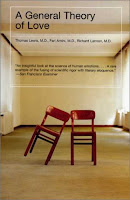Practice and discipline

One of the most heavily-watched athletic events is the Olympics. Whether it is the precision and grace of figure-skating, the power and physical mastery of gymnastics or the endurance and strength of the marathon, every event highlights the hard work and dedication necessary for humans to achieve their full potentials. Each athlete may begin with certain innate abilities but these remain merely a latent possibility until that athlete submits himself or herself to a systematic and rigorous training program. This training program is more than simply strength and endurance training. Integral to the discipline of the body is discipline of the mind. This fact was brought home to me in an essay that a student once wrote in an English composition class I taught. She was a state-ranked cross-country runner, and her essay described the thought processes that went on in a typical run. Constantly she had to gauge not only her own energy reserves, but also she had to monitor the movements of the o...

